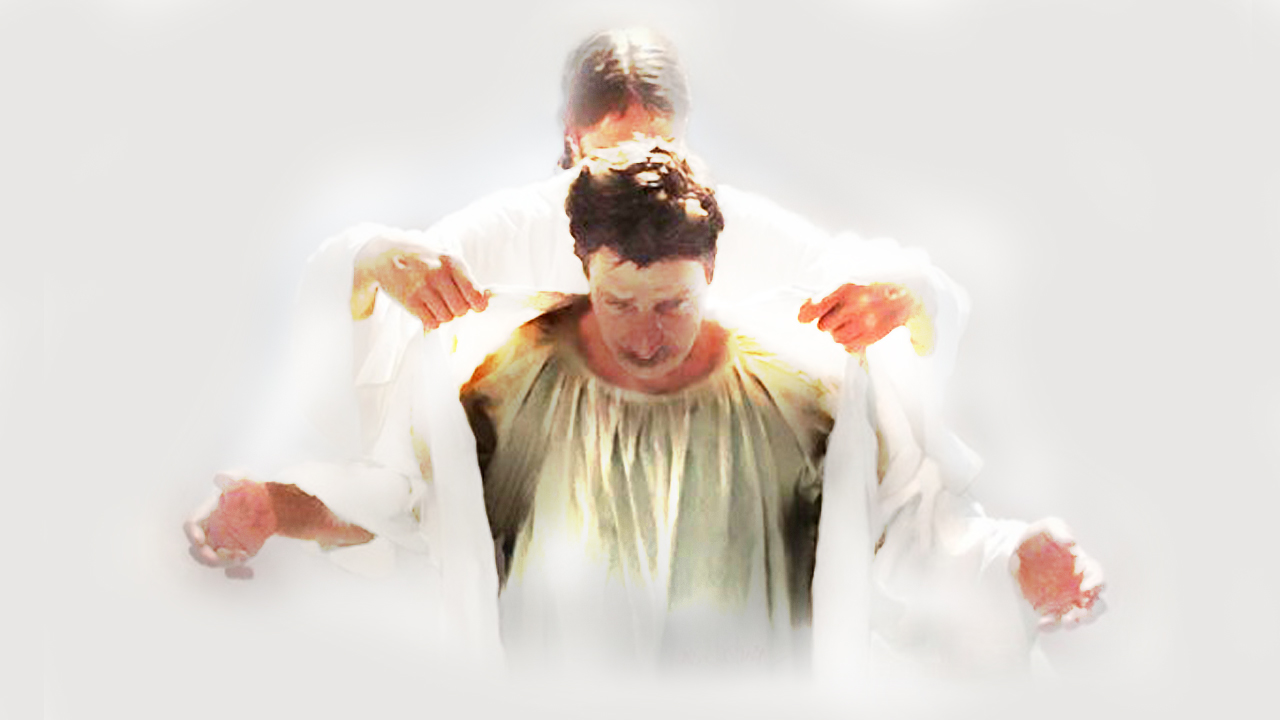We’re looking at the middle part of Romans 8 as it answers three fundamental questions for us today: Where are we? What are we called to do? How is it going to go? Yesterday, we noted that the world is in pain. The world is groaning in frustration over the curse of sin and death. Today, I suggest that all Christians are called to share that pain. As children of God and followers of his Son Jesus, we are called to share the world’s pain.
“We ourselves, who have the firstfruits of the Spirit, groan inwardly as we wait eagerly for our adoption as children, the redemption of our bodies.” ~Romans 8:23
We are called to share the world’s pain. To join the world’s pain. To bear the world’s pain. Not to ignore it, not to isolate ourselves from it, not to look the other way and pretend it’s not happening. The Church is called to share the world’s pain. We ourselves who have the firstfruits of the Spirit groan inwardly.
Wait. Why us?
Because we know. We know things are not the way they are supposed to be. Because we have the firstfruits. We have seen glimpses of the eternal glory. We’ve tasted the way things are supposed to be. We’ve experienced a little bit of what God is doing.
As a church, when we come together to worship, we get a sense of what’s coming. We join that great throng of heavenly witnesses around the throne of God, we’re united together with all the saints–past, present, and future. There’s another scene, there’s another city, there’s another reality beyond our time and space. And sometimes we see it. Sometimes we feel it, if only for a moment.
When we come together around the table and share the communion meal, we are one with God in Christ and we are one with one another. Perfect fellowship. Perfect unity. Perfect forgiveness and acceptance and love and peace. And it’s not ordinary. It’s Christian.
We don’t groan despite having the firstfruits; we groan because we have them. Because we’ve seen it. We know the glory that’s coming. Baby blessings and baptisms. Mission trip sendoffs. Harvest parties and fistbumps. 4 Midland. Small groups. We see and hear and touch and taste God’s healing and cleansing, his joy and unity and forgiveness, his life-changing power and reconciliation and compassion and love. We all experience up close and personal these firstfruits of the Spirit. And it’s not what you find in the ways of this broken world. It’s uniquely Gospel.
To accomplish what’s coming for us, our Lord Jesus had to get out of his comfort zone and put on our pain. That’s the Gospel truth. Christ Jesus left his home in glory, he sacrificed his position and his power, he gave up his rights and his status, and he joined us in our pain. He came to where we are and he put on our flesh and blood, he suffered in the dirt with us. The Bible says he became familiar with our sufferings. He carried our burdens. He became our sin for us, to rescue us from the corruption and decay.
We all share the common human predicament of pain. Of groaning. So, like our Lord Jesus, we intentionally seek out that pain in others. Where is that pain? You look for it. And you don’t have to look hard–we’re all surrounded by it. And we join the pain. We embrace the pain. We live in it. We share it. We stand for and with those who are in pain. We speak up for and with those who are suffering. The Church is called to share the world’s pain. Who else is going to? And if we don’t do it right now, when will we?
Some of you, I know, the pain is too far away. The problems are just on TV. You’ve never been shot by a police officer. You’ve never been discriminated against at work or school or had opportunities taken from you because of your skin color or your accent or where your parents were born. And maybe you don’t know anybody who has. It’s not something you think about or talk about unless it’s on TV.
For some of you, the pain is very close and very real. You do know someone. You’ve experienced it yourself. You think about it and talk about it all the time.
And, yeah, there’s no doubt, you’re all over the map in your own church. You have lots of different viewpoints and opinions, you probably don’t all agree on what should be done and what ought to work and the steps that need to be taken. You’re not all going to be on the same page.
But here’s what the Bible tells us. The world is in pain. The whole world is broken and suffering because of sin. It’s groaning. And, like our Lord Jesus, his Church is called to share that pain.
And you might say, well, I don’t know anything about racism. I don’t know how to fix it. I don’t know anything about homelessness or sexual identity. I can’t relate to people wrapped up in CPS cases or losing their jobs. I’ve never been to a prison. I’ve never even been in a hospital.
Well, you do know how to love people. You do know how to sacrifice and serve people. You know how to just sit with people, to just be present with people in their pain. To just listen. If it were your daughter, you’d do it.
I’ve seen you. I’ve seen you move heaven and earth, I’ve seen you sacrifice and suffer for the sake of being with your son or daughter. I’ve seen you struggle to build bridges, I’ve seen you lay aside your rights and your feelings to reconcile relationships with people you love. I’ve seen you work so hard and give up so much to heal and restore what’s broken in your own families. To just sit and be present and listen. Yes, you do know how to love people and share pain.
The world is in pain right now. That’s where we are. The Church shares the world’s pain. That’s what you and I are called to do.
Tomorrow, how is the sharing of this global pain going to work out?
Peace,
Allan




Recent Comments